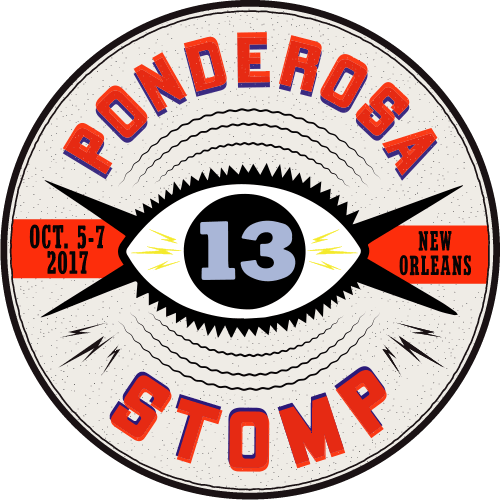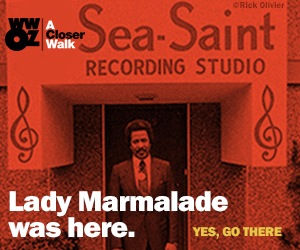http://www.youtube.com/watch?v=oVe1fyn4AQ8
The ashes of “Last Chance” singer Allen Collay made their long journey home to The Max lounge in Metry one Sunday afternoon in 2010, housed in a silver urn etched with a piano’s image, set onstage next to an unopened bottle of his beloved Heineken beer. Collay died – appropriately enough for a New Orleans R&B legend – on Fat Tuesday but – unlike kindred spirit Antoinette K-Doe a year earlier – 800 miles north in illness-imposed exile.
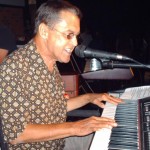
It was at the Chalet in particular that Collay’s music had burned into the brain cells of many a local music lover. Hang out long enough at any Metairie watering hole catering to the older crowd and soon one gray-haired sentimentalist or another will start rhapsodizing about Collay’s sizzling sets at the Chalet’s late-night jam sessions. The line of brass players and other walk-ons would be stretched out the door waiting for a chance to join Collay and his R&B runnin’ pardners, like Roland “Stone” LeBlanc, Bobby Lonero, and Roy “Big Daddy” Wagner.
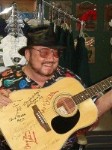
http://www.youtube.com/watch?v=QYm-uTeOimw
According to New Orleans pianist Al Farrell of the Midnight Streetcar band, “Last Chance” was recorded on a particularly memorable night in Louisiana history: Halloween 1959. Collay had just split with the Satellites to enlist with Farrell’s Counts and was due to join them at a club that night. But before he could make that gig, he had a song to wax – a job he had promised to the Satellites. After the session, when Collay finally showed up to play with the Counts, a roar exploded from the crowd. Farrell assumed the audience was excited to see Collay. In short, no: Turns out Billy Cannon had just returned his legendary punt for 89 yards against Ole Miss at Tiger Stadium, breaking seven tackles to lead #1 LSU to a 7-3 victory over the #3 Rebels and an eventual national championship – a gridiron milestone immortalized by Ponderosa Stomp favorite Jay Chevalier in his rockabilly opus “Billy Cannon.”
In all, Collay released several 45s produced by Allen Toussaint and Mac Rebennack for ShoBiz, Instant, and Ace. “Nice eight-piece arrangements,” Collay told pianist Tom McDermott in a 1997 profile. “I think they still hold up.”
http://www.youtube.com/watch?v=i9a2vH5m9xk
By the 1960s, fate swept Collay to Atlanta, where he stayed for 30 years, during which time he made the self-taught switch from guitar to piano. In the ’80s he hit a career peak in joining the nine-piece band Atlanta, which he described as “country-rock with Four Freshmen-style harmonies, which got the big push … before music industry wrangling tore the band apart.” The group made two albums on MCA and scored gold records via tunes such as “Sweet Country Music,” “Atlanta Burned Again Last Night,” and “Dixie Dreaming.”
http://www.youtube.com/watch?v=gPBNJm0APcM
By the early 1990s Collay had returned to the New Orleans area, living for a time on a St. Bernard relative’s houseboat at Delacroix Island, and resumed playing in the place where his career had begun – only this time as a “piano professor” in the Mac Rebennack/Ronnie Barron/Skip Easterling mold.
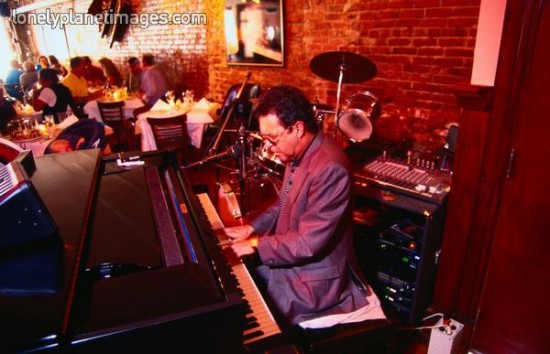
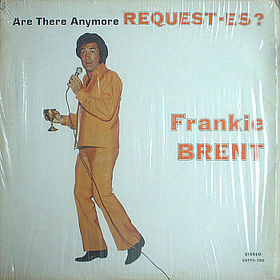 But Collay was in his element playing to Metairie’s “late-night” subculture at the Critic’s Choice lounge in a gig that would run weekend nights from 1 a.m. to 4 a.m. A hut-like dive with its particle-board walls and high-school graduation photos adorning the back room, Critic’s Choice was a magnet for a stunning array of old-school characters who were still young enough to ramble all night long on their steady diets of nicotine, booze, and music: The toupéed Frankie from Frankie and Johnnie’s furniture store (“Go see the Special Man”); longtime Lafitte’s Blacksmith Shop pianist Johnny Gordon; the trumpet-playing Irish cut-up Al McCrossen; and former flamboyant Metairie nightclub owner/singer Frankie Brent, then in the grips of a musculoskeletal disorder that seemed to have twisted his body in perpetual pain – yet he still occasionally took the mike to sing a hair-raising version of “These Arms of Mine.” Any number of musicians – whether pros or merely amateurs with one or two standards to sing – would show up to jam till the sun came up, with Collay cracking jokes or crying out “Play some Dixie!” to egg the guest soloist on.
But Collay was in his element playing to Metairie’s “late-night” subculture at the Critic’s Choice lounge in a gig that would run weekend nights from 1 a.m. to 4 a.m. A hut-like dive with its particle-board walls and high-school graduation photos adorning the back room, Critic’s Choice was a magnet for a stunning array of old-school characters who were still young enough to ramble all night long on their steady diets of nicotine, booze, and music: The toupéed Frankie from Frankie and Johnnie’s furniture store (“Go see the Special Man”); longtime Lafitte’s Blacksmith Shop pianist Johnny Gordon; the trumpet-playing Irish cut-up Al McCrossen; and former flamboyant Metairie nightclub owner/singer Frankie Brent, then in the grips of a musculoskeletal disorder that seemed to have twisted his body in perpetual pain – yet he still occasionally took the mike to sing a hair-raising version of “These Arms of Mine.” Any number of musicians – whether pros or merely amateurs with one or two standards to sing – would show up to jam till the sun came up, with Collay cracking jokes or crying out “Play some Dixie!” to egg the guest soloist on.
http://www.youtube.com/watch?v=9YeyjcHja8k
Collay’s local performance schedule peaked in the late 1990s with an appearance at the French Quarter Festival. Chef Jaeger also opened a supper club a block away from his restaurant and featured Collay leading a “history of New Orleans music” revue with players such as Staehle, chanteuse Ellen Smith, bassists David Lee Watson and Al Arthur, and guitarist Cranston Clements. But by then Collay’s health began to sour, dogged by diabetes and mini-strokes. The Max lounge in Metairie was the site of Collay’s final regular music residency, a weekend graveyard shift with a tight jazzy trio featuring Staehle on drums and Ray Shall on Hammond organ.
Numerous guests dropped in on Collay’s late-night sessions, but one illustrious visitor stands out in particular. His former producer, Allen Toussaint, happened to be attending an anniversary showing of Stevenson Palfi’s film “Piano Players Rarely Ever Play Together” at the New Orleans Museum of Art. This writer approached Toussaint – aware that the funk master had produced Collay’s early singles – and floated Collay’s name. His eyes leapt. “Where is he playing?” Toussaint asked, looking around almost frantically to borrow a pen for directions to The Max. When I finally showed up there hours later, I heard from awed witnesses that Toussaint had indeed just left the building after checking out his former protégé’s first set.
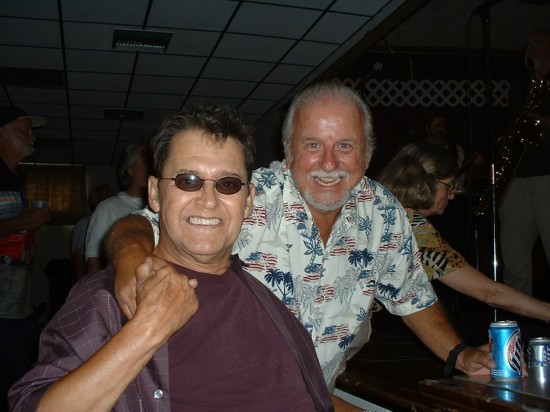
For Michael Hurtt’s Offbeat magazine profile of Allen Collay, click here.



